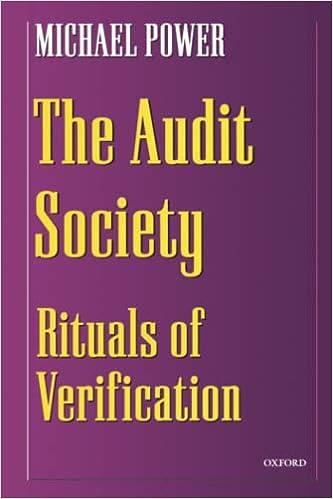Question
Assume you are the CEO of a publically traded company. Your chief financial officer (CFO) informs you that your company will not be able to
Assume you are the CEO of a publically traded company. Your chief financial officer (CFO) informs you that your company will not be able to meet earnings per share targets for the current year. In that event your stock price will likely decline. The CFO proposes reducing the quarterly provision for uncollectible amounts (bad debt expense) to increase your EPS to the level analysts expect. This will result in an allowance that is less than it should be. The CFO explains that outsiders cannot easily detect a reduction in this allowance and that the allowance can be increased next year. The benefit is that your shareholders will not experience a decline in stock price.
1. Identify the parties likely to be affected by this proposed action.
2. How will reducing the provision for uncollectible accounts affect the income statement and the balance sheet?
3. How will reducing the provision for uncollectible accounts in the current period affect the income statement and the balance sheet in a future period?
4. What argument might the CFO use to convince the company's internal auditors that this action is justified?
5. How might an analyst detect this earnings management activity?
6. How might this action affect the moral compass of your company? What repercussions might this action have?
Step by Step Solution
There are 3 Steps involved in it
Step: 1

Get Instant Access to Expert-Tailored Solutions
See step-by-step solutions with expert insights and AI powered tools for academic success
Step: 2

Step: 3

Ace Your Homework with AI
Get the answers you need in no time with our AI-driven, step-by-step assistance
Get Started


